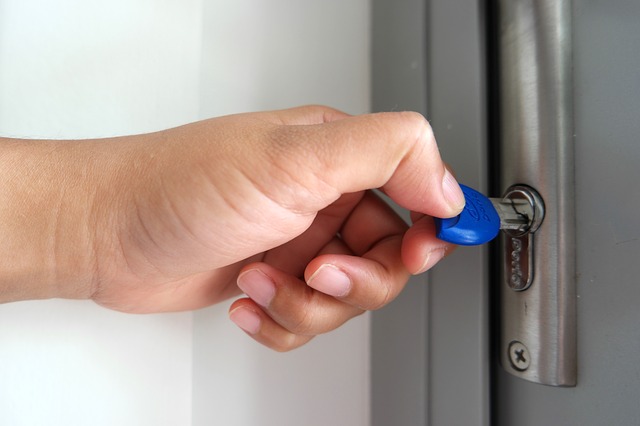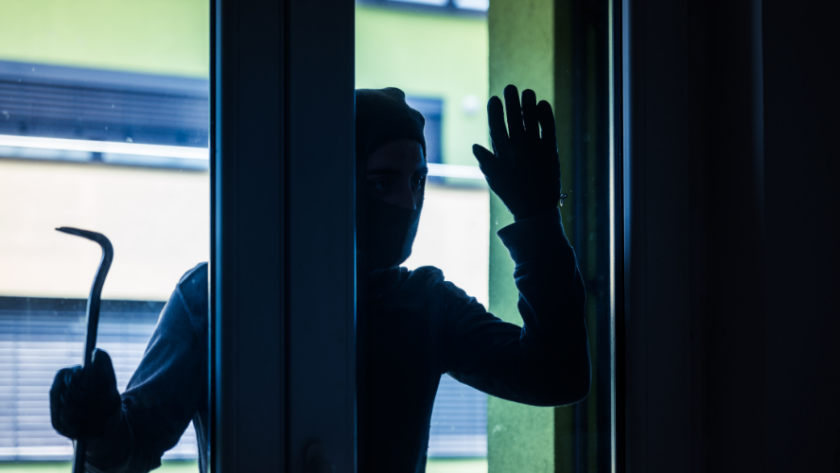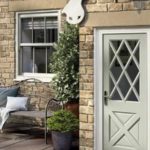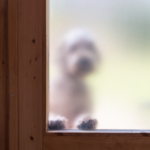A good set of French doors make a fantastic addition to just about any home. They allow light to pass through into the interior, they look the part, and they have a simple, elegant construction that matches with a range of apertures (particularly with the help of a pair of sidelights). What might concern those contemplating a set of French doors are their apparent security vulnerabilities. Here, we’ll take a look at those alleged vulnerabilities, consider whether they’re really all that significant, and see what we might do to counteract them.
Are French Doors Secure?
So, are French doors less secure than sliding or folding ones? Security concerns involving French doors tend to revolve around a few separate factors. Let’s run through them.
Glass
French doors, by definition, incorporate large panes of glass. And it’s for this reason that many suppose them to be unsecure. But glass isn’t actually as vulnerable as you might think. For starters, the glass used in an External French door actually requires quite a bit of force to break. And if you put your fist through it, you’re going to create jagged shards that’ll cause injury and leave forensic evidence. As such, you needn’t worry too much about the glass in your French door being a point of entry.
Locks

A likelier method of entry is forcing through the lock or hinges. For this reason, external French doors should be equipped with two sets of lock – one of them a morticed deadlock. You might also find doors with bolts which attach to the bottom of the door-frame. Of course, having a lock attached to your door is not much good if you don’t actually use it – so be sure to get into the habit of locking up every time you’re done with the doors.
A set of uPVC French doors cannot be modified with the addition of extra locks – and if you try, you’ll end up ruining the door. This makes it particularly important to look for something with adequate locking to begin with. If you’ve opted for a timber door, on the other hand, you’ll be able to add additional hardware as you go.
Curtains and Blinds
A more justified security problem with French doors is that they allow those outside your home a means of looking inside. If your interior is filled with high-value electronics like televisions, speaker systems and Xboxes, then this might give it a bit of a ‘shop-window’ effect for would-be intruders. Happily, we can eliminate this problem by simply drawing a set of curtains or blinds across the interior of the door when we’re not around.
To prevent your doors from intersecting the adjacent curtains, be sure that they open out onto your patio rather than inside. This will make them more vulnerable to getting caught by the wind, so you’ll need a means of securing them on the outside. You might alternatively just keep your curtains suitably open when you’re operating the door.
Alarms
Equipping your door with an alarm system will ensure that any attempt to open it will cause an ear-splitting beep to fill the air. This will prompt any sensible intruder to take flight in the other direction, and it’ll also massively increase your chances of securing a successful prosecution. You might consider advertising that the door is alarmed on the outside, via special labels which affix to the inside of the glass – though this will obviously effect the look of the door.
Smart Home Security

These days, electrical appliances in the home are more interconnected than ever before. The so-called ‘internet of things’ allows us to turn the thermostat up or down from our smartphones – and it allows car manufacturers to monitor things like braking distance and fuel economy, and use this information for future designs.
So, what does this have to do with your French doors? Plenty! There are a myriad of door-opening detectors available, operating via clever magnetic sensors. They can be programmed to sound an alarm when the door opens, in the same way as a standard alarm system. But the best examples offer Wi-Fi connectivity, and send notifications to your phone if the door opens while you’re out. You can then log on to your smart security-cameras and watch whatever is unfolding in your home. If you really know what you’re doing, you can even incorporate your French doors with other elements of your smart-capable home – in which case just about anything’s possible.
We should, however, attach a note of caution, here. So-called ‘smart’ technology is really a bit of a marketing buzzword – just because it says ‘smart’ on the label doesn’t mean that the alarm system you’re considering is worthwhile. So be sure to do your research and understand exactly what it is you’re getting. If you’re not going to be using the features of the product you’re buying, then the money might well be better spent elsewhere.
In Conclusion
Are exterior French doors less secure? While we’re sure there are shoddily-built examples lurking in some older homes, the answer is, for the most part, a resounding no. French doors are just as robust as their sliding and folding cousins.
We’ve taken a look at a few ways to make your French doors more secure – and these improvements are usually cheap and effective. Even the ones that are a little more expensive might end up paying for themselves in the long-term, as you’ll have to deal with less stress, fewer visits from the police, and, ultimately, lower expenditure on insurance.
If you’re deciding between French, bi-fold and sliding doors for your exterior, then aesthetic and practical concerns should inform your decision far more than things like security. There are some homes for which French doors are a great match – and you shouldn’t let the often-exaggerated security problems with French doors dissuade you from investing!





